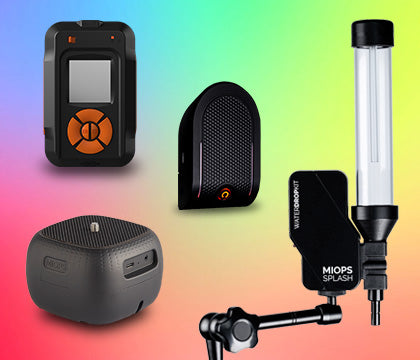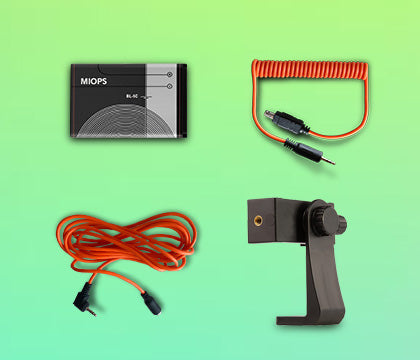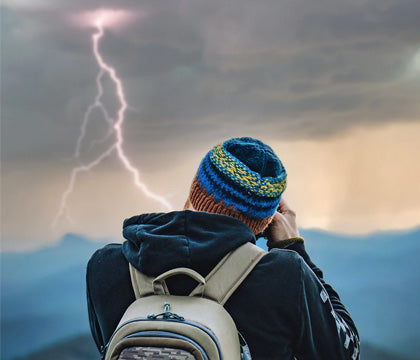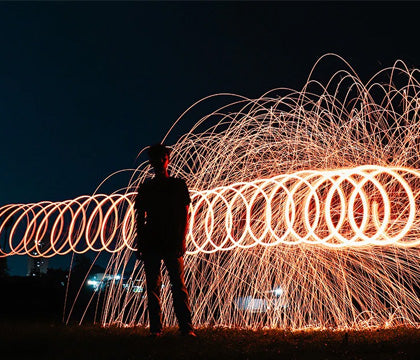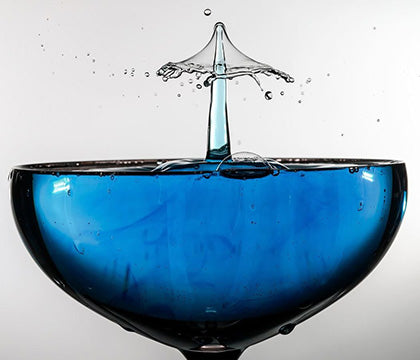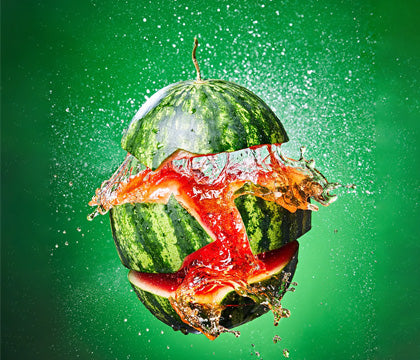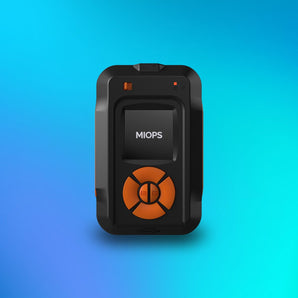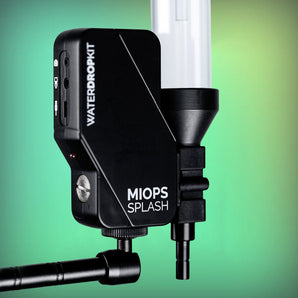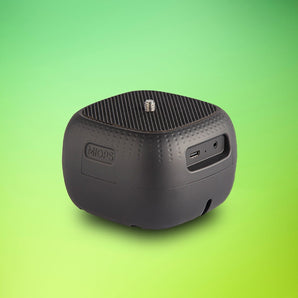Long exposure photography is the art of using slow shutter speeds to create artistic effects on your photographs. Once you have mastered the art of long exposure photography, it can be used in a wide variety of situations and images.
Steel wool photography is one such variant where you can create stunning images using long exposure and burning steel wool. This technique involves capturing sparks and light streaks that arises from a steel wool that is ignited and spun around.
The artistic and dramatic images of steel wool photography in social media platforms and photography websites makes one believe that this is a complicated technique involving lots of expensive gear. However, steel wool photography is not complicated as it looks and can be mastered with practice and patience.

What gears do you need?
- A camera capable of shooting in “Manual” preferably “Bulb” mode
- Lens – wide angle would be ideal, though a zoom or prime lens can be used as well
- A Sturdy tripod
- Remote shutter release like MIOPS Smart+
- Steel wool
- Steel kitchen whisk with a string attached
- A match box or lighter
- Protective clothing
- Dark and safe location
- Head lamp / Torch Light
- A friend – two hands are better than one!!!
Preparation before setting out to shoot
- Buy enough steel wool. Steel wool is a bundle of fine and flexible steel filaments normally used for cleaning surfaces. This is easily available at your neighborhood hardware stores and supermarkets. Steel wool is also available in different grades. Finer the grade, shorter the overall burn time and lesser the intensity. Medium grade steel wool will burn longer with higher intensity. Finer grade is therefore recommended. Finer grade is usually designated 0 (you could see 00,000 or 0000). The finesse reduces as the grade value increases (typically seen up to 4). The grade is usually mentioned on the packaging.
- Get a kitchen whisk. Stainless steel is recommended, plastic should not be used. Whisk with an eye at the end is needed to attach a string.
- Grab a string which is ideally 1 to 2 meters long. It can also be a rope, a flexible wire, or a leash etc..
- Pull apart the steel wool and fill it in the whisk. Do not over stuff. Make sure that there is enough space for air to flow. Tie the string to the whisk and adjust it to suit your requirements.
- Practice spinning the whisk around (of course without lighting it). Try different patterns and angles – vertically, horizontally, sideways etc..
- Identify suitable location - a dark and safe location would be ideal to start with.

Shooting
Once you are at the location, set your camera on the tripod. Frame your shot. Focus your camera using auto focus roughly at the position where you will stand. Use a headlamp or torchlight to light the area where you want to achieve focus. Once focus is achieved, lock the focus by switching to manual focus. This will prevent your camera attempting to refocus. The image stabilization on the camera/lens can also be turned OFF as the camera is on the tripod. The “in camera noise reduction” may also be turned off.
Having a friend to help you out is an added advantage. One can control the camera while the other spins the steel wool. You can keep switching positions to not miss out on the fun.
Camera Settings
Set the aperture to between f/8-11 (or the sweet spot of your lens). This will help to give you a decent depth of field. Shutter speed can be set based on the grade of steel wool used. Finer grade steel wool would burn out in about 10 seconds and the medium grade would take a bit longer to burn out. So, a shutter speed between 10 to 15 seconds can be chosen. ISO may be set to 100. Setting white balance to “Daylight” would be ideal. You can also set it to “Tungsten” if you are shooting in dark conditions. AWB can be a good start as well and you can choose suitable white balance as you master the steel wool photography. These settings could be a start point and they can be adjusted depending on the conditions.

Whether you have a friend with you or not, it is better to have a remote shutter release in your camera bag.. This will help you trigger your camera without touching it and thereby reducing camera shake. Having an advanced trigger like “MIOPS Smart+” will also give you further flexibility like timed delay before the exposure. This makes it easier, to control the camera as well as lighting and spinning the wool. For example, you could set a delay of 30 seconds and exposure time of 10 seconds. In this case the exposure would start only 30 seconds after you trigger the release.
Take impossible photos by turning your camera into a high-speed capture device!
MIOPS SMART+
This gives ample time to get to position, light the wool and start spinning. You may have to do few test shots to check and arrive at the exact amount of delay needed. Adjust the shutter speed and/or aperture if you find highlights on the burning wool that are blown off or if the picture turns out to be dark.

Add on Tips
After you have mastered the basics of steel wool photography you can innovate yourself and become more creative.
- Select a location with an interesting foreground or background. They can be lit using the light from the burning wool or artificially.
- A location by the side of a water body can give you a good reflection. This will add to the composition as well as a wow factor.
- Light paint your foreground or background. You can set longer shutter speeds like 25 seconds and start to paint the foreground or background with a torch light after the wool stops burning. Remember to quickly douse or remove the wool once it has stopped burning if you want to light paint.
- Shoot between walls or frames to give strength to give a different feel.
- Position a friend or model and spin the wool behind them.
- Move towards, away or sideways from the camera while spinning.
- Try out different angles to give different results.
- Shooting just before sunrise or just after twilight using longer shutter speeds like 20 to 30 seconds. This would expose the surroundings naturally and add to your composition.
Tips for using MIOPS Smart+ Trigger
Set camera to bulb mode, aperture f/8-11 and ISO 100. Settings on the MIOPS trigger – if you are alone set a delay of 30 seconds and exposure of 10-15 seconds. Alternatively, you can use the MIOPS app on your mobile as well. Adjust the delay accordingly if you have a friend to help you.
Safety First
Steel wool photography involves playing with fire and can burn you or start fires. Hence safety is of paramount importance and must be taken very seriously.
Choose locations without any flammable materials in the vicinity as sparks can fly by depending on how you spin. Dry grass, wood, vehicles, old buildings, gasoline etc can easily catch fire from the sparks that fly out from the burning steel wool. Never do steel wool photography indoors. Wide open locations like beaches, deserts, rocky areas, near water bodies, open lots etc are ideal. Wet weather is also a safe bet.
Wear safe and protective clothing to cover bare skin, hands and hair. Having a safety google on is also advisable.
A fire extinguisher or water bucket within is strongly recommended. Stay back at the location a good 30 minutes after you finish to ensure that there is nothing smoldering or burning left.

Conclusion
Steel wool photography does not need expensive gear, it is neither complex nor intimidating. It is just a matter of having the right camera settings for long exposure and spinning the burning steel wool. Practice and patience would help you master this technique. However, safety aspects should never be disregarded while doing steel wool photography.
Author Bio
Ansari M. Joshi has developed his skills by self learning and following the works of other photographers and pursues photography as a hobby. He has a keen interest in landscape and long exposure photography. His ambition is to capture the beauty of this genre of photography and tell a story of his own to the viewers. Ansari is from India and currently living in UAE.
Instagram: @mysonans


